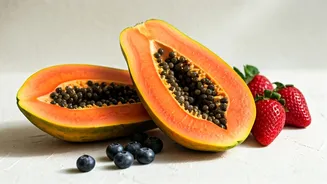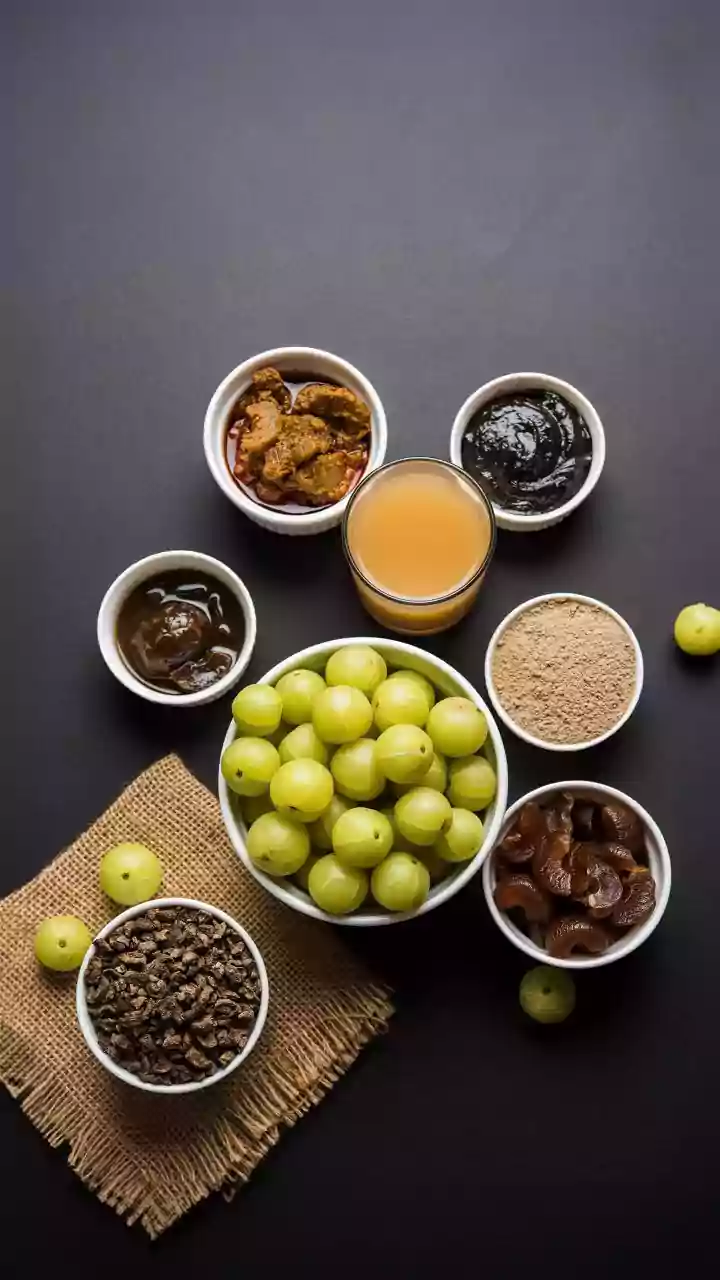Avocado: Skin's Best Friend
Avocado, often hailed as a superfood, tops the list for a reason. These creamy delights are full of healthy fats, essential for moisturizing your skin
from the inside out. They contain vitamins E and C, powerful antioxidants that fight off free radicals, protecting your skin from damage and promoting a youthful appearance. Consuming avocados regularly can improve skin elasticity, reduce inflammation, and give you a natural, healthy glow. Incorporate avocado into your daily diet by adding it to salads, smoothies, or simply enjoying it on toast. The monounsaturated fats found in avocados help keep skin hydrated, preventing dryness and promoting a smooth texture. Their rich nutrient profile supports overall skin health, making them a staple for anyone seeking radiant skin.
Asparagus: Nutrient Powerhouse
Asparagus, though often overlooked, is a nutritional powerhouse when it comes to skin health. It's packed with vitamins A, C, E, and K, all contributing to healthy skin function. Vitamin A helps repair and maintain skin tissue, while vitamin C is crucial for collagen production, keeping your skin firm and reducing wrinkles. Vitamin E is a potent antioxidant, protecting skin cells from damage caused by sun exposure and environmental factors. Furthermore, asparagus has high levels of glutathione, an antioxidant that helps detoxify the body and improve skin clarity. Eating asparagus regularly can help reduce blemishes and even out skin tone. It can be easily incorporated into meals by grilling, steaming, or adding it to stir-fries, providing a delicious and effective way to nourish your skin from within.
Broccoli: Antioxidant Champion
Broccoli, a cruciferous vegetable, is a champion when it comes to skin health, thanks to its high antioxidant content. These antioxidants fight free radicals, which are known to cause premature aging and skin damage. Broccoli is rich in vitamins C and K, both essential for maintaining healthy skin. Vitamin C boosts collagen production, crucial for skin elasticity, and vitamin K helps to heal scars and reduce inflammation. Broccoli also contains sulforaphane, a compound that protects your skin from sun damage and may help prevent certain types of skin cancer. Eating broccoli regularly can contribute to a clearer complexion and improved skin tone. Enjoy it steamed, roasted, or added to salads and soups for a nutritional boost that benefits your skin from the inside out.
Garlic: Skin's Defense
Garlic, known for its pungent flavor, is a powerful ally for healthy skin. It contains allicin, a compound that boasts potent anti-inflammatory and antioxidant properties. These properties help to combat skin problems like acne, eczema, and psoriasis. Garlic also has natural antibacterial qualities, helping to prevent infections and keep skin clear. Consuming garlic can help reduce inflammation, promoting a more even skin tone and reducing redness. Though the smell can be strong, the benefits for skin health are undeniable. Incorporate garlic into your diet by adding it to soups, stews, or sauces. The antioxidants in garlic help protect skin cells from damage and contribute to a healthier, more radiant complexion.
Tomatoes: Lycopene Power
Tomatoes are a fantastic source of lycopene, an antioxidant that has been extensively studied for its benefits to skin health. Lycopene protects the skin from sun damage by neutralizing harmful free radicals, potentially reducing the risk of sunburn and premature aging. Tomatoes also contain vitamins C and A, contributing to collagen production and skin repair. Vitamin C helps to brighten the skin, reducing the appearance of dark spots and blemishes. Regular consumption of tomatoes can improve skin texture, reduce inflammation, and enhance your natural glow. Enjoy tomatoes in salads, sauces, or as a snack. Their versatility makes them an easy and delicious addition to any diet. The antioxidants in tomatoes work from within to provide a healthy and vibrant complexion.
Spinach: Nutrient Boost
Spinach, a leafy green, is packed with nutrients that are essential for skin health. It is an excellent source of vitamins A, C, and K, as well as antioxidants, all of which contribute to a healthy complexion. Vitamin A supports skin cell production and repair, vitamin C promotes collagen synthesis, and vitamin K helps in reducing inflammation and dark circles. Spinach also contains lutein, an antioxidant that protects the skin from sun damage. Adding spinach to your diet can improve skin hydration, reduce wrinkles, and enhance overall skin radiance. Enjoy it in salads, smoothies, or sautéed as a side dish. Spinach's rich nutrient profile makes it a key ingredient for achieving and maintaining healthy, glowing skin.
Cauliflower: Vitamin Source
Cauliflower, another cruciferous vegetable, is a versatile and beneficial food for skin health. It's rich in vitamins C and K, offering antioxidant protection and anti-inflammatory properties. Vitamin C is crucial for collagen production, enhancing skin elasticity and firmness. Vitamin K helps with blood clotting, which can aid in the healing of skin injuries and reducing the appearance of bruises. Cauliflower also contains sulforaphane, a compound that may protect the skin from sun damage and reduce the risk of skin cancer. Eating cauliflower regularly can contribute to a clearer complexion, a more even skin tone, and overall skin health. It can be easily incorporated into meals by roasting, steaming, or adding it to your favorite dishes.
Peas: Antioxidant Richness
Peas, often enjoyed as a side dish, are also beneficial for skin health, providing essential nutrients that contribute to a healthy complexion. They are packed with antioxidants, which help to protect the skin from damage caused by free radicals. Peas contain vitamins C and K, essential for maintaining healthy skin. Vitamin C is crucial for collagen production, and vitamin K assists in reducing inflammation. Peas also provide a good source of fiber, which aids in detoxifying the body, thus improving skin clarity. Including peas in your diet can contribute to a more vibrant and glowing complexion, making them a simple yet effective addition to any meal. They can be enjoyed fresh, frozen, or added to soups, stews, and salads.
Grapefruit: Vitamin C Powerhouse
Grapefruit is a fantastic source of vitamin C, an essential nutrient for healthy skin. Vitamin C is a powerful antioxidant that protects the skin from damage caused by free radicals and boosts collagen production, essential for maintaining skin elasticity and reducing wrinkles. Grapefruit also contains a good amount of water, which helps to hydrate the skin from within, promoting a plump and glowing appearance. Furthermore, grapefruit has detoxifying properties, aiding in removing impurities from the body, which can contribute to clearer skin. Consuming grapefruit regularly can improve skin texture, reduce inflammation, and enhance your natural glow. Enjoy it as a refreshing snack or add it to your salads and smoothies for a nutritional boost.
Watermelon: Hydration Booster
Watermelon is a hydrating and refreshing fruit that significantly benefits skin health. It has a high water content, which helps to keep the skin hydrated and plump, reducing the appearance of dryness and wrinkles. Watermelon is also a good source of vitamins A and C, essential for skin repair and collagen production. Vitamin A helps to repair skin tissue and vitamin C is a potent antioxidant that protects against free radical damage. In addition, watermelon contains lycopene, an antioxidant that helps to protect the skin from sun damage. Eating watermelon can improve skin hydration, texture, and overall radiance. Enjoy it as a snack, add it to your salads, or blend it into refreshing drinks for a delicious way to boost your skin's health.



















